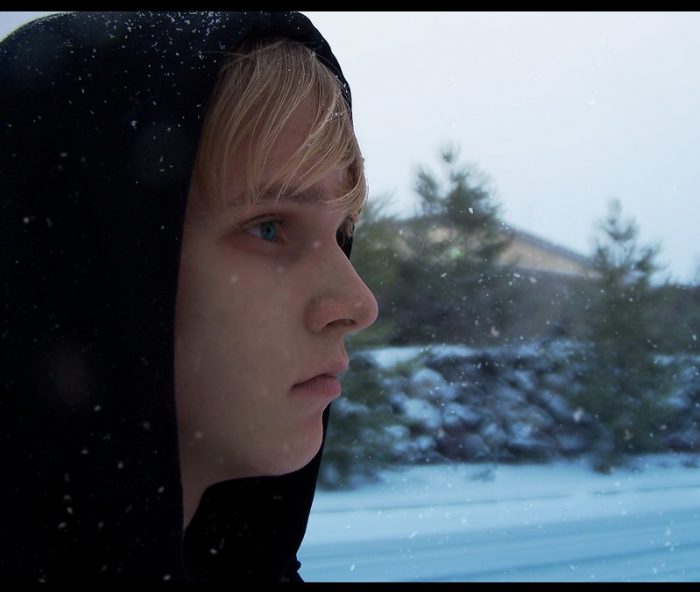Have you ever heard of the term “Complex PTSD”?
Unless you already started working on healing your unresolved lifetime traumas, or unless you are a professional who works in this landscape, it is difficult to understand what Complex Post-Traumatic Stress Disorder is.
For an extended time in my life, I thought there was something wrong with me.
I was not quite a “normal” child. I can say this because I had a stroke before I was 10 years old. I remember this particular morning. I remember waking up, getting up, and trying to put on my school shirt. It was the same routine I had followed for many years already. I knew it well.
This particular morning, however, my left hand just didn’t want to do what it was so used to doing—closing the buttons on my shirt. I remember my mother’s face when I asked her to help me. The shock, the fear in her eyes. The panic that followed.
I found out later that I had a stroke. I was 10.
Why am I telling you this?
I’m not looking for likes. Nor am I looking for sympathy. No. I’m sharing this with you as a prologue. A strong introduction, based on the truth of my life experience, designed to keep your attention, designed to keep your thoughts from wandering away from these very words you are reading, now. See how I’m dragging you closer and closer into the words?
This is a bit what hypervigilance is like—an intense awareness of one’s surroundings, without any borders or filters. A total sensory and emotional overload. One of the symptoms of complex-PTSD can be hypervigilance.
The story is true. I did have a stroke the year I turned 10. I won’t go into too much detail about the day, or the ride in the ambulance to the hospital, or how I still now, feel the muscle behind my left shoulder blade tense up, whenever I hear any emergency service sirens.
I will sit down and write a worthy article about this experience in the future—what led up to it, and how it affected my childhood and teenage years. For the purposes of this article, though, I will tell you this.
After being in the hospital for more than six months, after countless tests and observations—what the medical system presented my parents with as an explanation was that their young son had an overdeveloped sense of responsibility and that the pressure he started to carry in his body because of this caused the stroke.
So yes—stress can kill children as well. I was nearly one of these statistics.
Let’s forward 20 years. I’m a weekend Daddy. I clean windows to pay my bills. I am single. I am an alcoholic. What has happened to my life? I was 30 years old on the outside, and 110 years old, on the inside.
I had studied many different things already at this stage of my life. This is one thing, I should add—I’ve always loved learning. But nothing I learned really, how can I say—”lit my fire,” though.
As Jimmy Morrison used to describe the very moment his endocrine system would be activated, notifying his heart to work harder, and faster, so that the happy-making neurotransmitters can go to work, from his gut to his neocortex, initiating a cascading trigger effect, starting his evolutionary adaptive epigenetic “survival of the fittest rock star born with innate features” mechanism.
Up until this stage in my life, nothing ever really “lit my fire.” For the “I” inside “myself,” was completely suppressed underneath years of pain and trauma.
Ten years ago, I was 30. I had just come out of a tremendously emotionally-charging and challenging relationship. I was broken. And lost. That was so hard. I would not wish this time of my life on anyone. Looking back, I’m still not really sure how I managed to get through this time in my life. It really was a “one day at a time” situation. A situation that turned into one month at a time, and eventually, one year at a time.
Just as I started to really think about taking control back of my life and my destiny, things got worse. Things got terribly, horribly worse. My only close friends all died in 2013. Yes, you read that correct. All five of them.
I still get teary-eyed just writing this now. One of them was like my brother from another mother. We grew up together. We were confidants. We were brothers. He was only 33. He died in his sleep from a brain hemorrhage.
Back then, this is eight long years ago now, if you saw me walking on the street, on my way somewhere, to do something, you would have never guessed that I was this broken. How could you?
Unless we connect with someone and share our stories, unless we connect with others, and listen to their stories—we only ever really take people on face value.
A kind of “what you see is what you get” evolutionary information processing mechanism designed to help us filter what we have processing space for, and classifying what we don’t have space for, as “I’ve seen this before” information. This turns 95 percent of what our senses perceive into the crayons we use to color in the pre-conditioned, already well-practiced paradigms in what is now our mushed subconscious mind. Thom Yorke from Radiohead called it the “Paranoid Android.” Fitting.
That was then. This is now. I stopped drinking completely in 2017. I haven’t since, and unless someone waterboards me with whiskey, I have decided not to drink again.
Shortly after this, I figured out that I am emotionally hypersensitive due to complex PTSD. Years of trauma, suppressed pain, and unresolved experiences had a profound effect on me. I use this word because what I felt, was very much great in its intensity.
Many more things happened as well. I haven’t told you how I lost my first best friend when I was 17, or how I broke my femur at 19 by passing out behind the steering wheel of my car. This particular experience cost me my hopes of becoming an internationally-recognised athlete. I share more about my life experiences through my Linkedin articles (link in my author bio).
So many things happened. They all came together to form one big, giant trauma. My trauma.
Suffering years of different kinds of trauma, like this—many people go through this—made me super-sensitive to the emotional needs of those around me.
So intense sometimes, that I couldn’t turn off feeling responsible for other people’s thoughts and feelings. Remember why the doctors said I had a stroke all those years ago? Because of an overdeveloped sense of responsibility as a child. Well now as an adult, this was accompanied by an underdeveloped sense of emotional boundary regulation. Double whammy.
This is how complex trauma works: specific environmental stimuli trigger the subconscious pattern, activating the original defense mechanism the body designed to protect its driver—the person—from danger. The issue is that a grown man, without warning, turns into a 10-year-old boy all of a sudden. This is an extremely esoteric situation to find one’s self in. And even a harder situation for someone else to deal with.
I can tell you this, there is hope. There is a light inside you, and there are ways of learning how to show this light to do what it was designed to do. To shine. I did. So I know you can.
In conclusion, if you are hypersensitive to other people’s emotions and perceived thoughts and behaviors, chances are that you might have some form of unresolved trauma, or traumas, still hidden deep inside your body. Please be mindful, dear reader. I’m not talking about empaths, that’s something totally different.
I’m talking about your emotional sensitivity causing you internal disharmony, stress, overwhelm, depression, and pain—repeatedly. I’m talking about not having any natural emotional regulation mechanisms in place and thinking that this is normal. Well, it’s not.
You, my friend, like me, share something special.
We share trauma.
I am very happy to say this though: I have successfully dealt with mine, and it made me a much clearer, more balanced, more understanding, and substantially more connected and compassionate person.
There is hope.
There is always hope, as long as we breathe.
~







Read 18 comments and reply